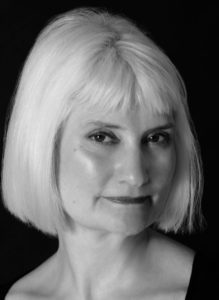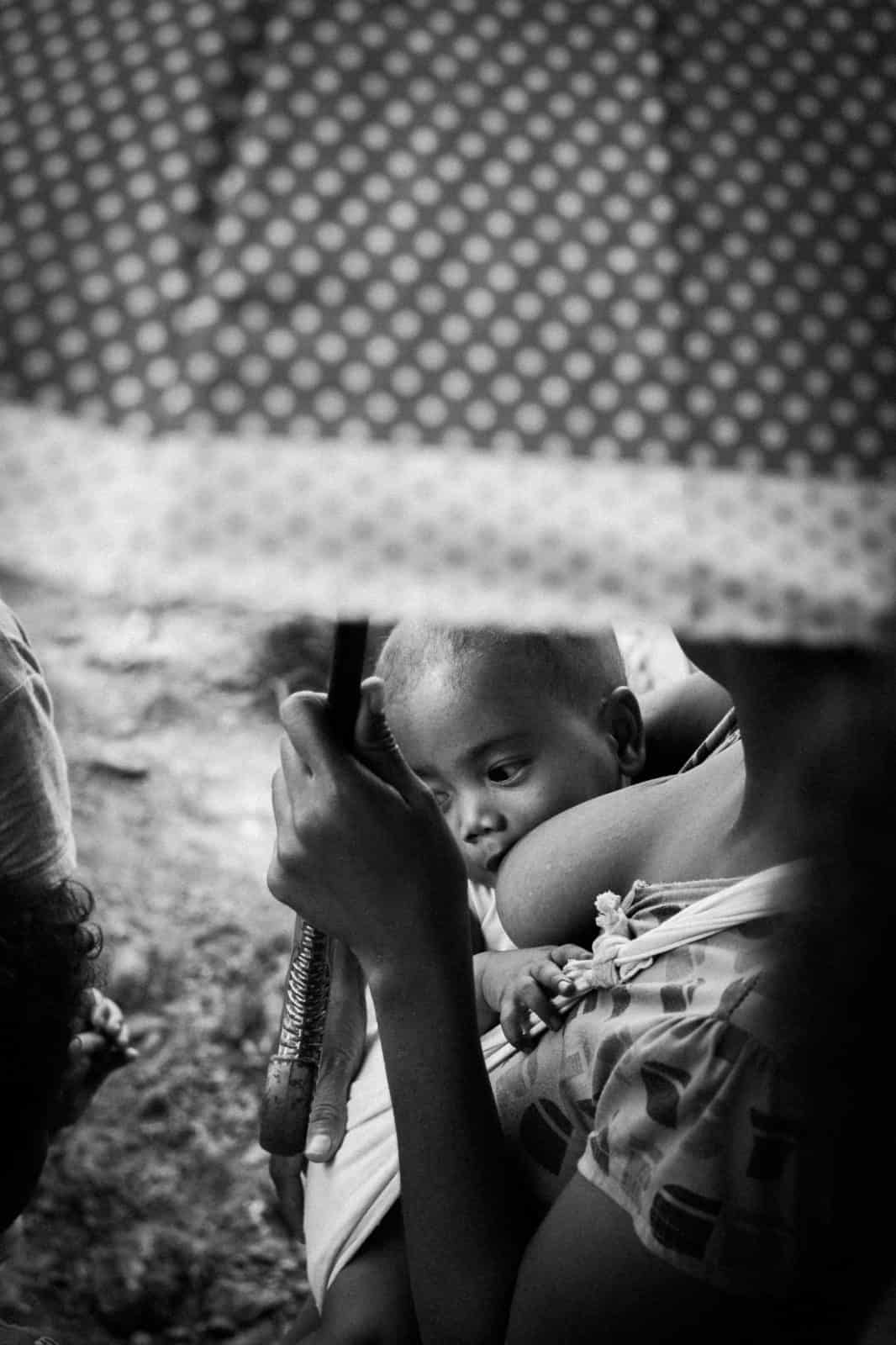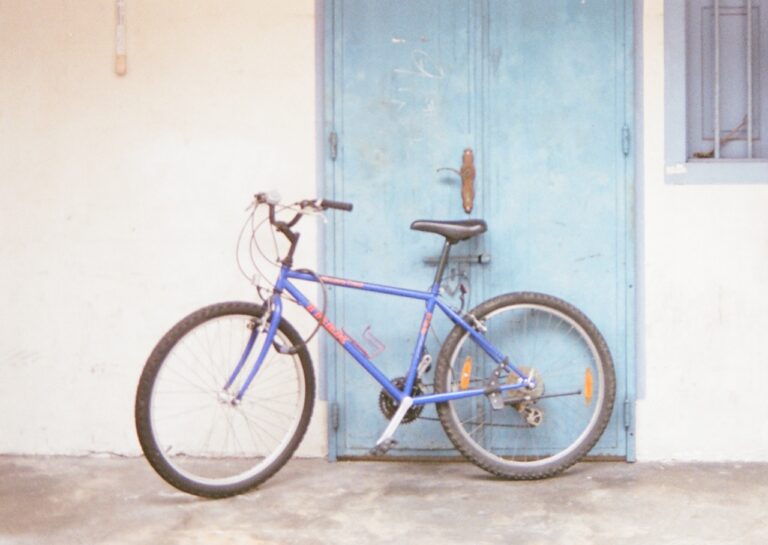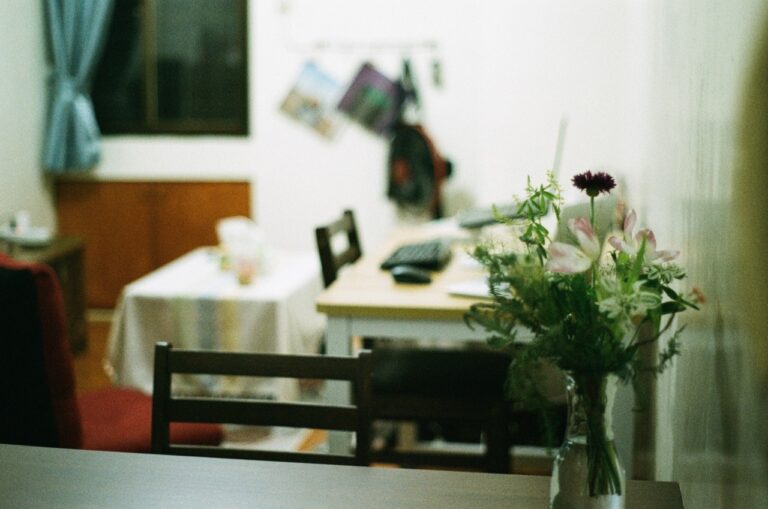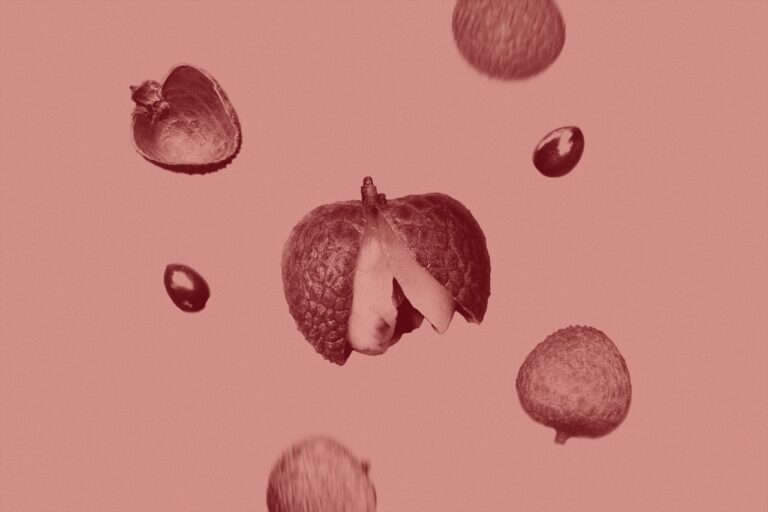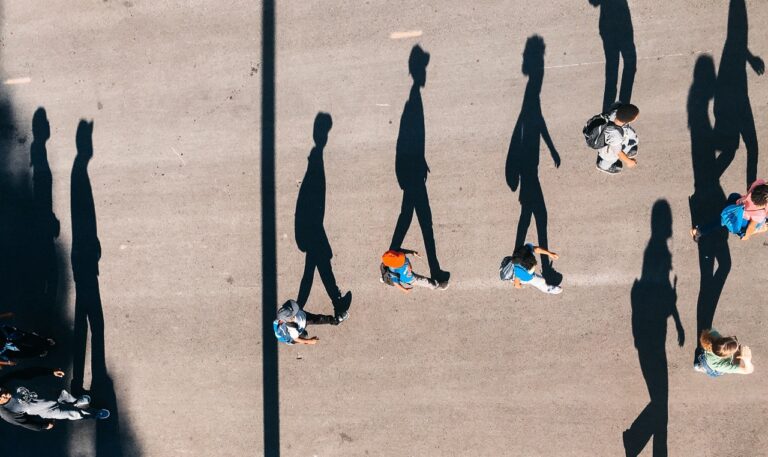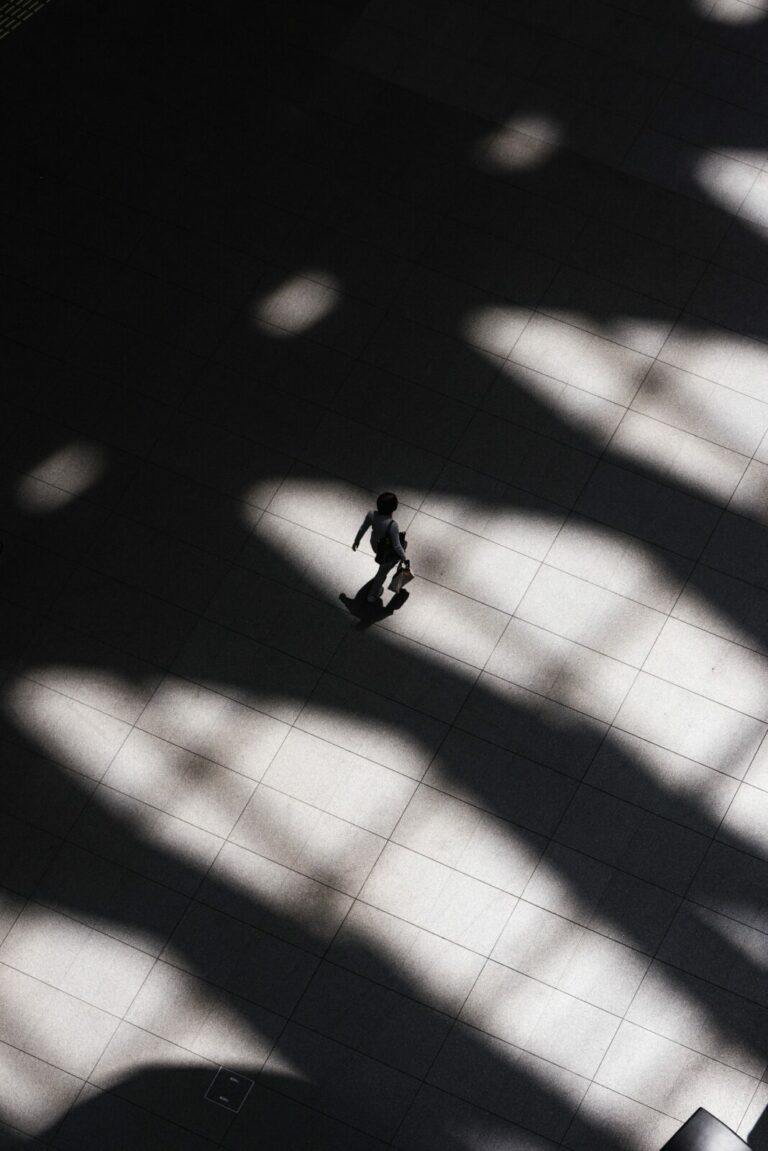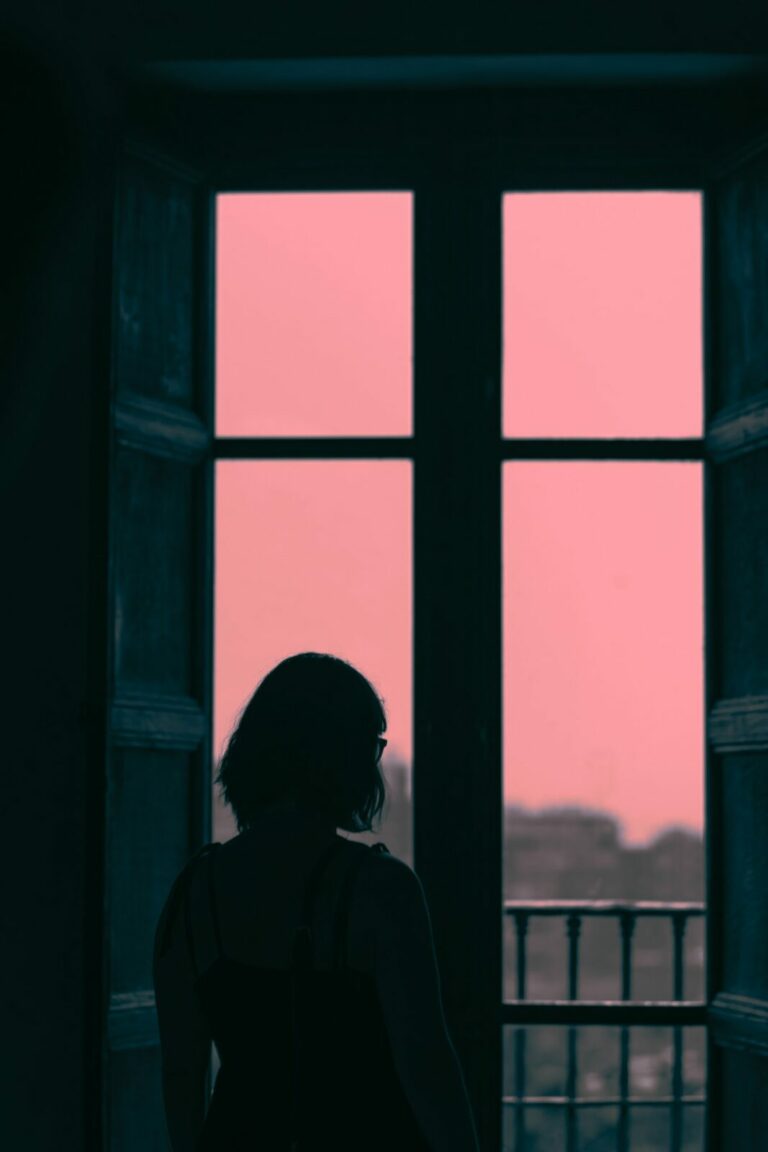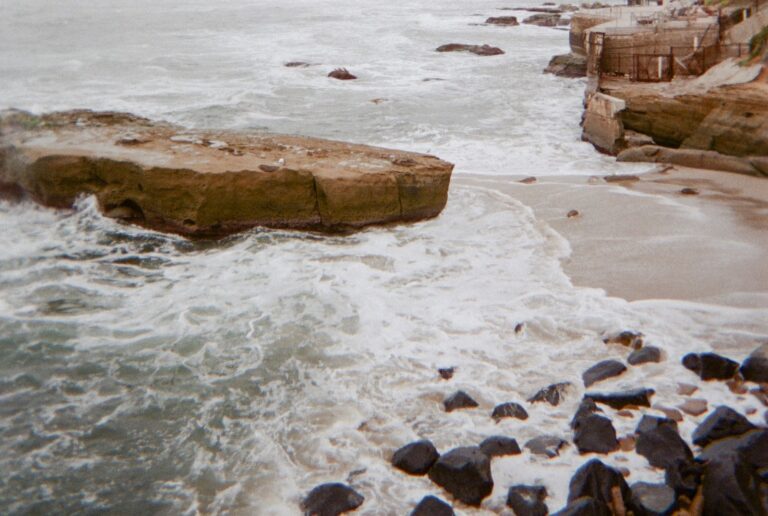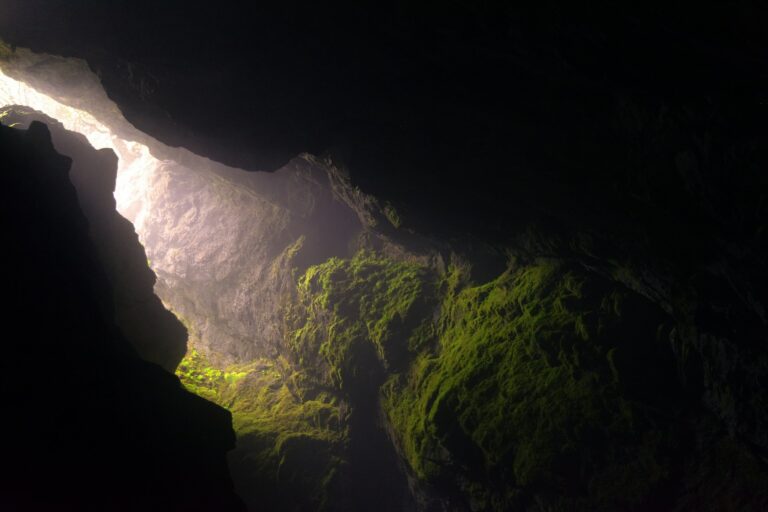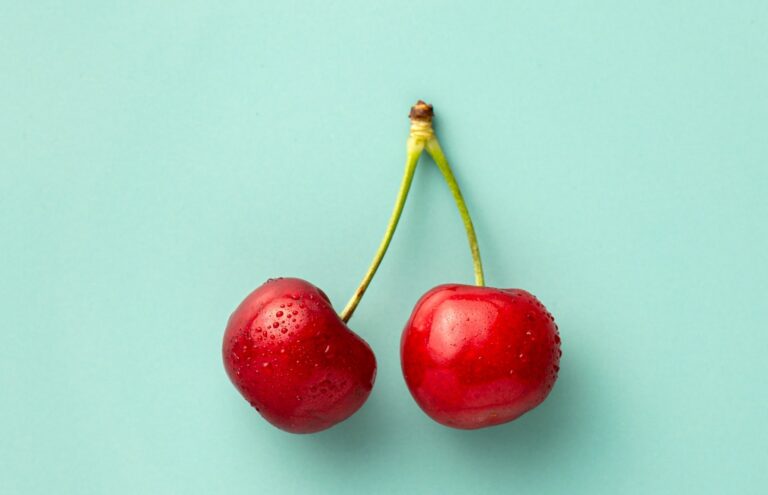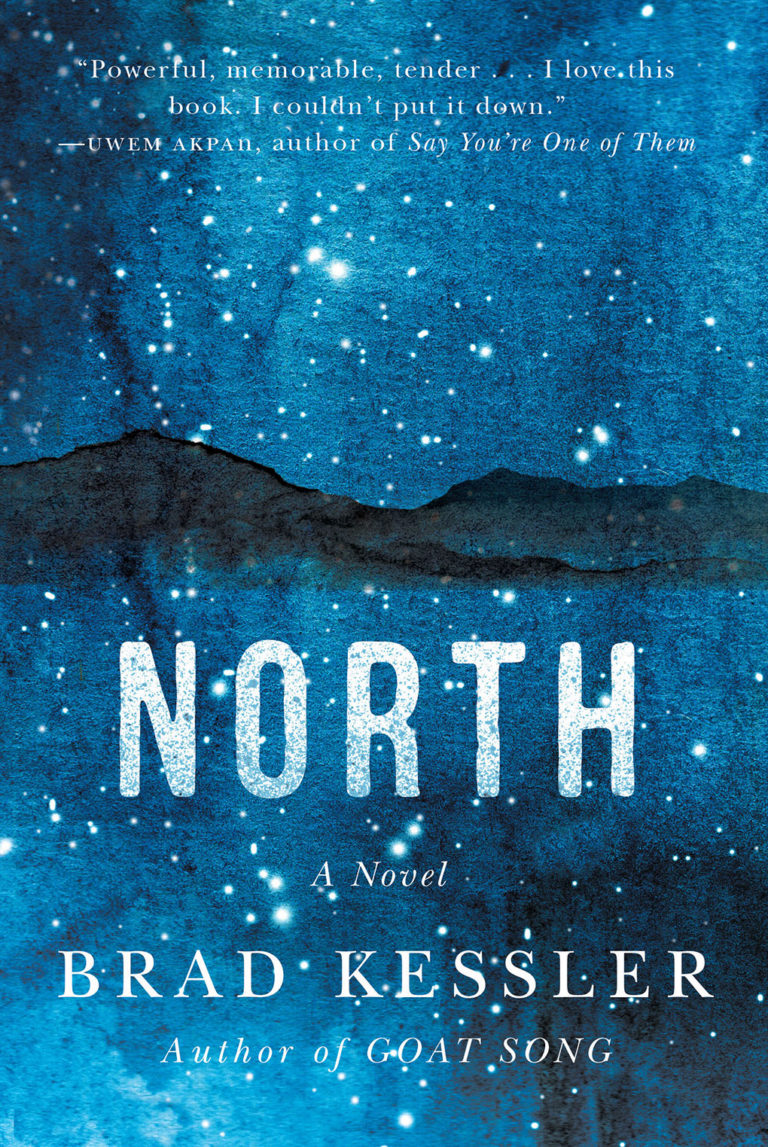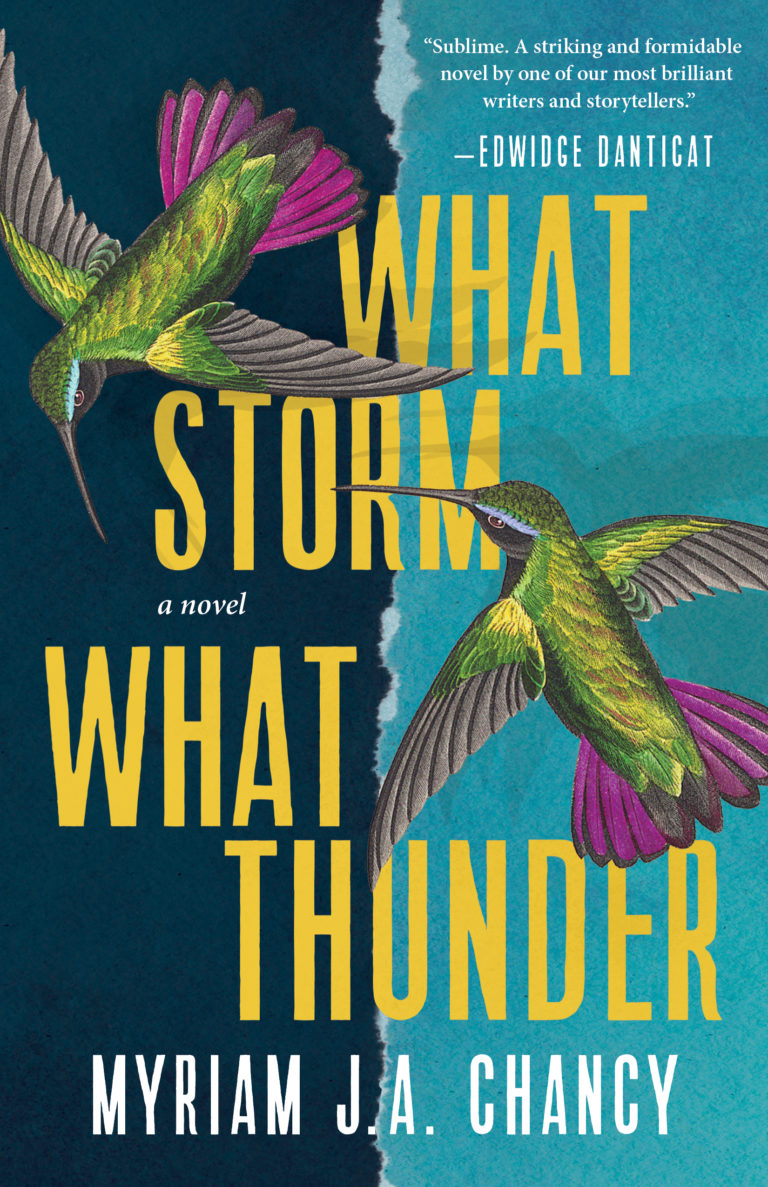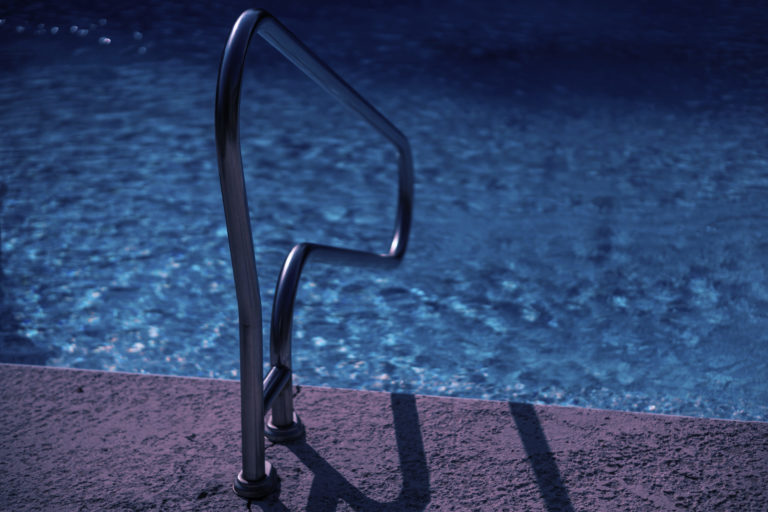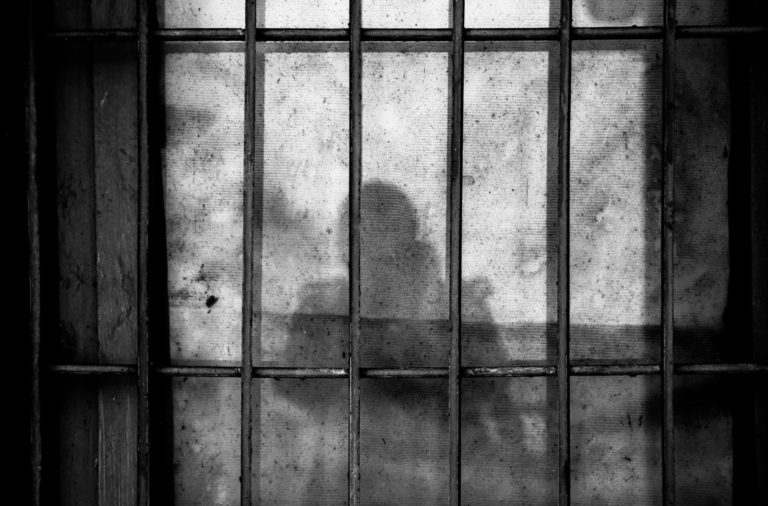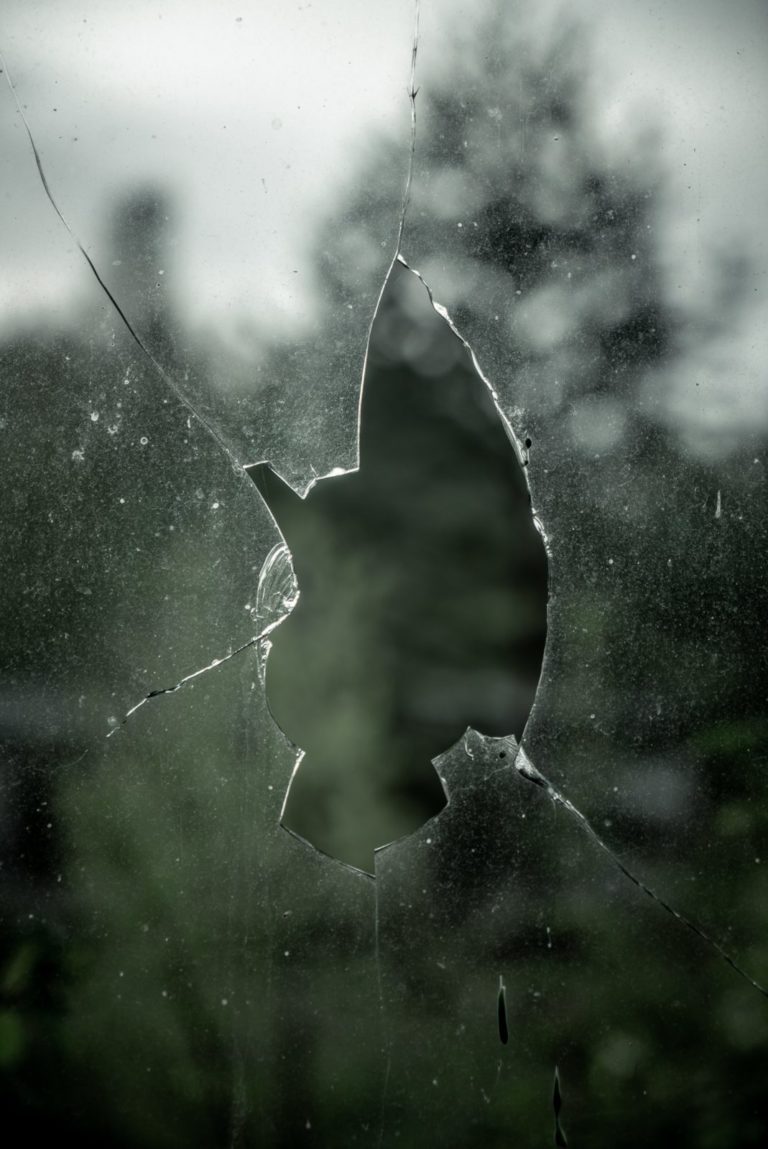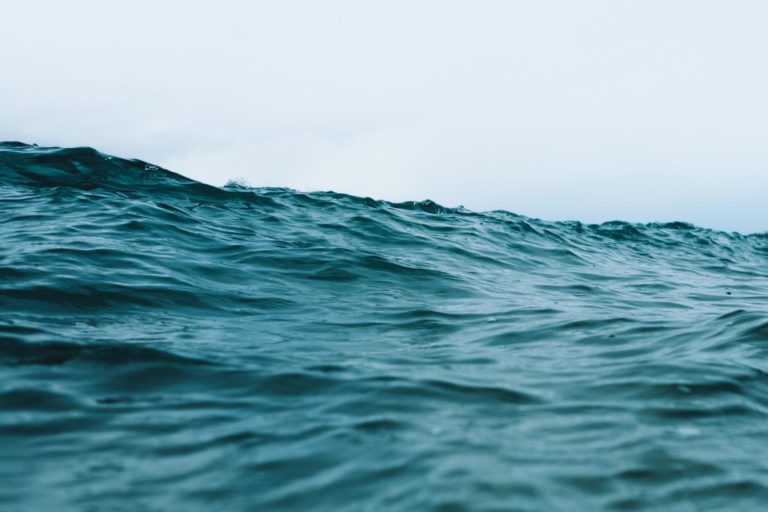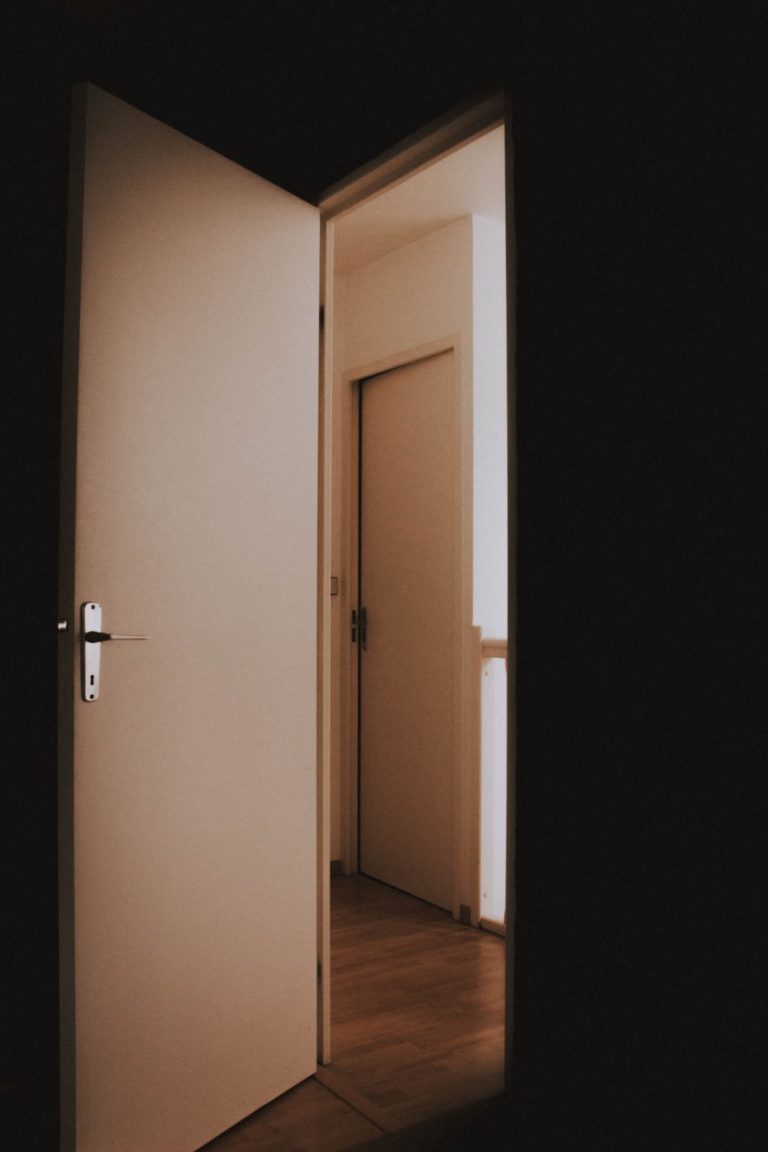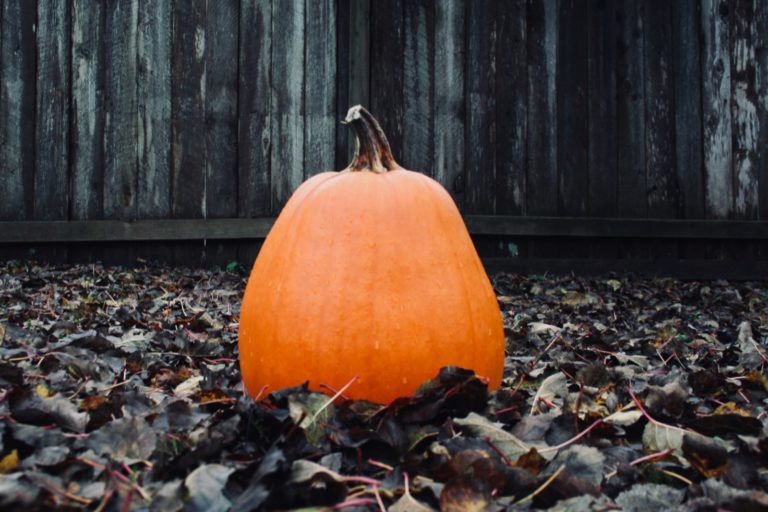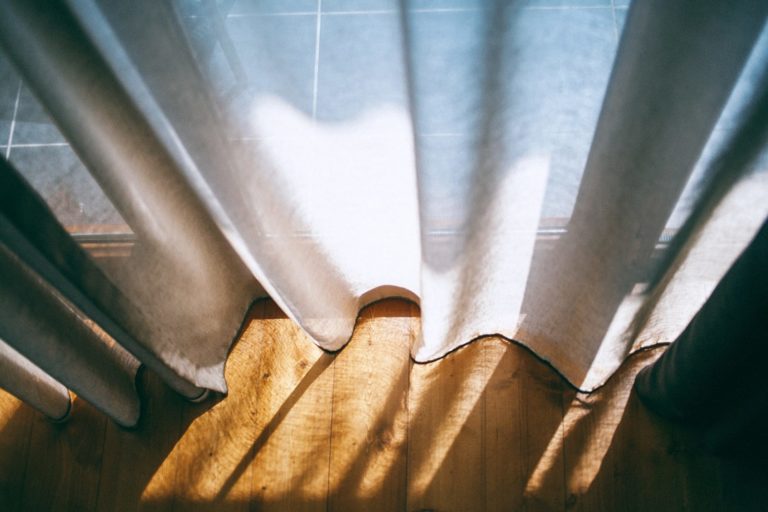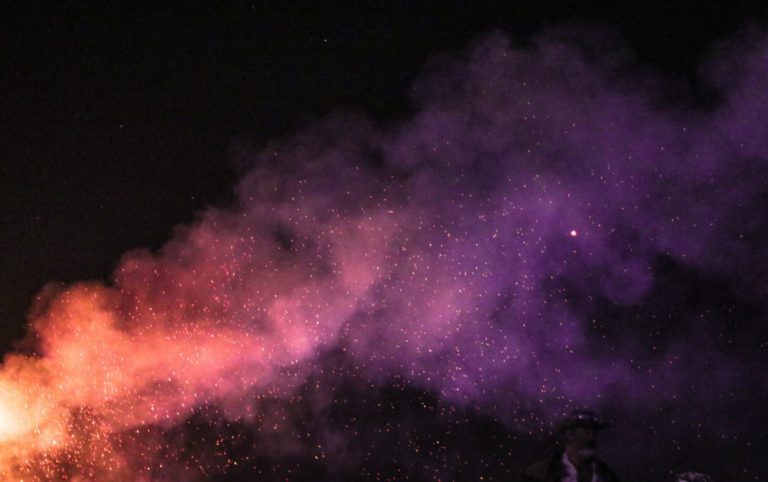I sat abreast of the mother-in-law, tit dripping, baby log-rolling thighs: mine, hers. Who made up the rest of the crush? Your cousin, asleep, jaw hanging, on the far side of the mother, you, in heaven in the front seat, talking sweet about a film you hoped to make to whomever beside you who made films too, who said Whoa! like that, in exclamation, when you stopped, not short but ass-to-bumper-kissing, on the unpronounceable bridge. The truck driver behind us crushed gears threatening to tap us too, then gunned it, with hope.
Hope had been filling our car from baby-suck to the bent ears of all, even the sleeper who hoped no one had noticed, but especially the mother-in-law who avoided admitting she found babies dull and disorderly, and instead cast out film-hope regarding you, she who had seen the city’s skyline at the top of the bridge herself with hope long ago and who also harbored the cocktail kind of hope.
All four lanes halted.
Like at the top of a ferris wheel, I said with cheer. We were on the Up. Cheer was best for an in-law who had traveled the planet to find greeting card images that a non-militaristic international organization would be proud to feature children on. She was that kind of in-law, accomplished, and I was the other, except in the recent maternal. Her line of work suggested she liked at least pictures of children, and I’d seen a distant don’t-hug-me affection for you. She hadn’t comprehended—her verb—grandchildren, but she was game enough. She touched her grandson’s foot when he beat her leg in the ecstasy of milk-lust, she was sure he had her eyes. She was examining him now while I had him suspended by the underarms, head bobbling. The pre-baby seat era allowed that.
Some of the drivers beside us cracked their car doors. Try the radio, said the someone who was in film beside you in front and then he followed his own suggestion and tuned in—sports news—high pops from the outfield—temperature, almost cool enough to roll down the windows (we rolled)—and national news.
Where are those traffic helicopters when you need them? you said, tapping on the windshield near its crack we hoped your mother would notice and offer to fix. More hope.
I stuck my head out the window and all that hope escaped. Someone many cars ahead cried.
The baby cried then too, drowning out the other, but we had all heard. I rolled the window up again, the baby lunging for the opening, his cry trailing.
An accident, said the film someone in front. Must be bad.
Those who had cracked their doors had already shut them, to keep the a.c. in, if not the crying out.
If it were an execution, everyone would be out of their cars, crowds would gather, I said. I had a special knack for the dreadful.
My mother-in-law told a very brief story about liberating Dachau. She had also worked as a journalist, she had heard cries. Was she competing with my dreadful?
The caught fly that no one would kill flew zzut, zzut, behind the car visor and was now doing its hair with its legs, said the guy in front who brushed his hand at his own in the peculiar silence we made after Dachau, his hair film-ready like those in the industry who don’t work that often.
In the car ahead swiveled a plastic hula girl every time the rear passenger shifted to get a better look between his parents. Wide-eared, he must have heard the crying too, all their windows had been down. His mother turned in her front seat and threatened him in word or deed, to sit still and he did, for three seconds.
I said, Somebody better check. I had the hormones of life rushing through me, I couldn’t help it, I wanted everything to live.
You got out, stretched, took off your sunglasses and tossed them back into the car. This is no movie said your cousin, blinking awake, vis-à-vis the guy in the front seat who didn’t budge, and he came around to your side where the two of you hesitated.
I rolled down the window. I’d go, I said, but—
The baby danced in my lap in hidden agenda, like more milk.
Two cars ahead and I couldn’t see you anymore, either of you.
My, my, said my mother-in-law. She said that word of possession whenever anything got out of her control. I actually liked her because she was so easy to assess: my not your telegraphed clear and direct. I’d given up trying to convince her that I was more than a curious hanger-on with her son, that the marriage idea came from him, the gold to be dug being not readily apparent, the jewelry metaphor more diamond-in-the-rough.
The guy still in the front seat tried to talk more about films, a recital of titles someone her age might have enjoyed. She warmed to him, but the crying outside was louder now since I felt it wasn’t right to roll up my window against it and I wanted to hear you, if necessary. The occupants of other cars had rolled down theirs down again too, perhaps also anxious and curious—what did we hear? One or two more followed you and your cousin with mincing-in-between-the-car steps, but without cell phones because those electronics existed in a more driving-dangerous future than ours. Only green metal boxes with pictures of receivers embossed on their outsides allowed stalled drivers access to 911 then.
This is not a stall, I said, out of the blue.
You were not there to tell me to stop being such a drama queen or to give me the eye that said the same without saying anything in front of your mother but it was you taking so long that made me blurt this out. Disaster is catching, I knew, the way women who are friends get pregnant, and I started talking about all the babies in our area that had come out of the woodwork, as if wood were some weird stork, and I stopped.
No one was listening when you and your cousin’s heads popped up over the horizon and now you were almost back at the car. The two of you carried the blank faces of shock, you especially who blanched even at the boo-boos the baby suffered, and such faces kept us quiet two beats after you got back in but it was me, always me, the baby pulling at my buttons after another milk session, who asked why you were missing your belt.
Tourniquet, you said.
We had to walk off the bridge to find a working phone, said your cousin. He opened his door again and tucked his head down to vomit.
Lots of people there now, you said. No one then, you said.
We were returning from a visit to summer and its beaches. A story by Bradbury was in order: random cars gassed in the tunnel to the beach every weekend as a means of population control, but I didn’t tell it, nursing the baby to sleep at last, the kicking, very happy baby.
A person can’t have too much blood, you said. You’d gripped the wheel since you returned as if it would fly up and hit you.
The baby belched and everyone laughed, we laughed weirdly and the baby cried, startled.
It’s a sweet child, said my mother-in-law, the first plus-plus statement she’d made all weekend.
You turned around, astonished. Mom, you said, you won’t live forever.
You’d rehearsed this line, it was supposed to be part of a private talk given while you returned her to her airplane. There this opening line sat, the rest of the speech sorting itself out with the phrase “errant grandparenting” foremost but unsaid at this time.
The cars moved.
You have to be very careful, she said.
Was that my future too? I almost had the brains to wonder, with the baby finally sleeping, me with an exhaustion no longer possible to contemplate.
